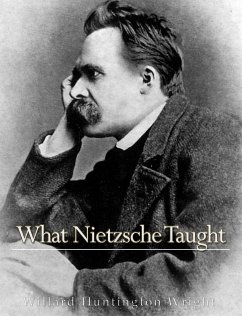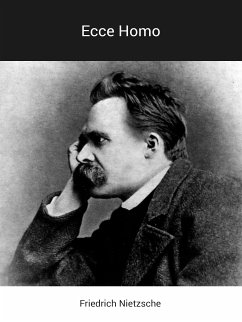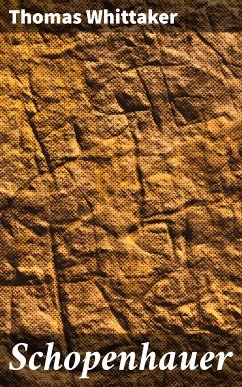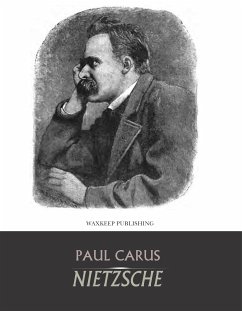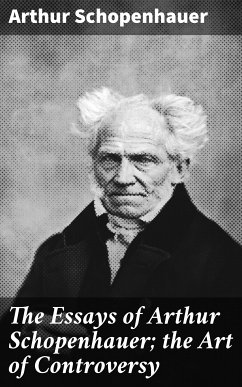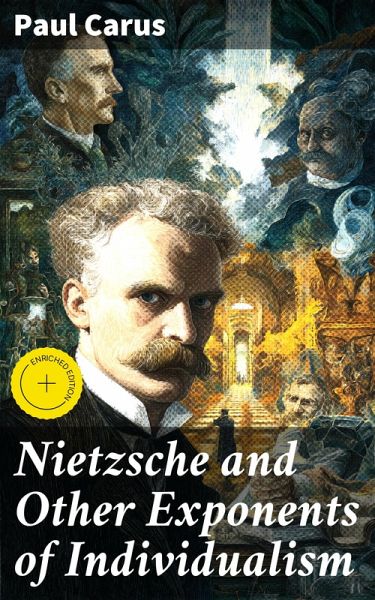
Nietzsche and Other Exponents of Individualism (eBook, ePUB)
Enriched edition. Exploring Individualism and Nietzschean Philosophy
Kommentar: Ball, Victor / Redaktion: Good Press
Versandkostenfrei!
Sofort per Download lieferbar
0,49 €
inkl. MwSt.
Weitere Ausgaben:

PAYBACK Punkte
0 °P sammeln!
In "Nietzsche and Other Exponents of Individualism," Paul Carus delves into the complex interplay of individuality and society, presenting a critical examination of Friedrich Nietzsche alongside other thinkers who championed the ideals of personal autonomy. Carus employs a clear, analytical literary style enriched with philosophical rigor, guiding the reader through Nietzsche's radical propositions while juxtaposing them with the ideas of contemporaries such as Ralph Waldo Emerson and Auguste Comte. This text not only contextualizes individualism within the late 19th-century philosophical land...
In "Nietzsche and Other Exponents of Individualism," Paul Carus delves into the complex interplay of individuality and society, presenting a critical examination of Friedrich Nietzsche alongside other thinkers who championed the ideals of personal autonomy. Carus employs a clear, analytical literary style enriched with philosophical rigor, guiding the reader through Nietzsche's radical propositions while juxtaposing them with the ideas of contemporaries such as Ralph Waldo Emerson and Auguste Comte. This text not only contextualizes individualism within the late 19th-century philosophical landscape but also highlights the implications of these thinkers on the moral discourse of modernity. Paul Carus, a pivotal figure in the spread of philosophical ideas in America, was profoundly influenced by his background in scientific rationalism and interest in Eastern and Western philosophies. His work often reflects a devotion to individuality and a critical stance toward the dogmas of religion and tradition. Carus's commitment to the enlightenment of the individual mind'-combined with his extensive knowledge of both Western philosophical traditions and Eastern thought'-shapes the core arguments of this enlightening work. "Nietzsche and Other Exponents of Individualism" is essential reading for anyone interested in philosophy, ethics, and the evolution of individualism. Carus's incisive insights not only challenge readers to question conventional norms but also inspire a deeper understanding of the balance between individuality and collective societal values. In this enriched edition, we have carefully created added value for your reading experience: - A succinct Introduction situates the work's timeless appeal and themes. - The Synopsis outlines the central plot, highlighting key developments without spoiling critical twists. - A detailed Historical Context immerses you in the era's events and influences that shaped the writing. - A thorough Analysis dissects symbols, motifs, and character arcs to unearth underlying meanings. - Reflection questions prompt you to engage personally with the work's messages, connecting them to modern life. - Hand-picked Memorable Quotes shine a spotlight on moments of literary brilliance. - Interactive footnotes clarify unusual references, historical allusions, and archaic phrases for an effortless, more informed read.
Dieser Download kann aus rechtlichen Gründen nur mit Rechnungsadresse in A, B, BG, CY, CZ, D, DK, EW, E, FIN, F, GR, H, IRL, I, LT, L, LR, M, NL, PL, P, R, S, SLO, SK ausgeliefert werden.





